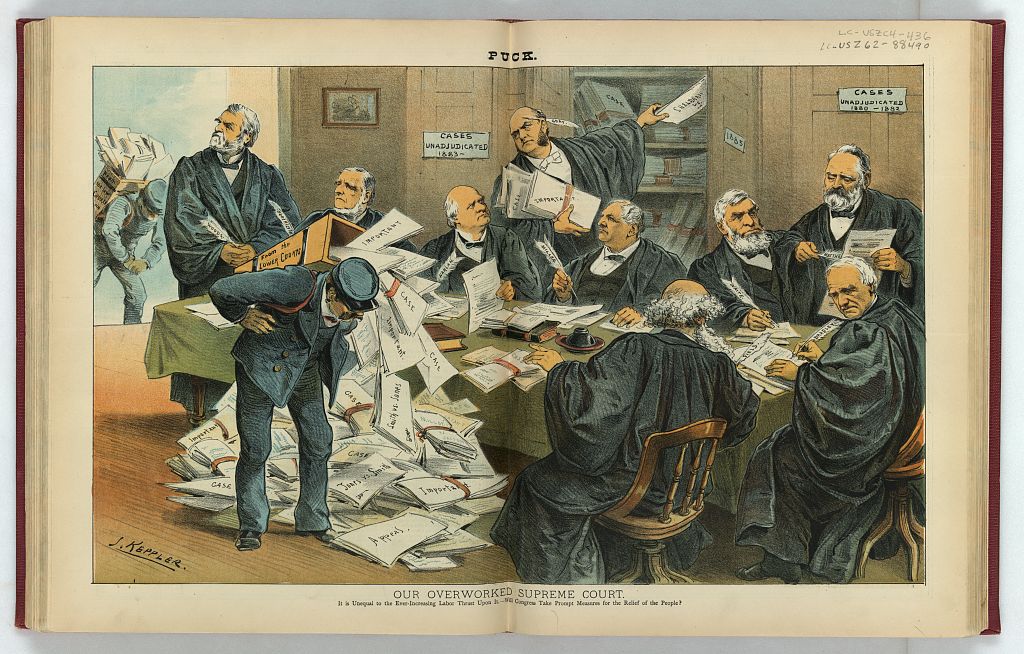Law is a word that means different things at different times. Black’s Law Dictionary says that law is “a body of rules of action or conduct prescribed by controlling authority, and having binding legal force. That which must be obeyed and followed by citizens subject to sanctions or legal consequence is a law.”Black’s Law Dictionary, 6th ed., s.v. “law.”
At the macro level, the law can serve to (1) keep the peace, (2) maintain the status quo, (3) preserve individual rights, (4) protect minorities against majorities, (5) promote social justice, and (6) provide for orderly social change. Conversely, the law may keep peace at the expense of individual rights, maintain an ugly status quo, be used to oppress minorities, and so on. In a democracy, law ultimately reflects how society wishes to order itself, while in authoritarian governments law is used to perpetuate existing power structures. In that sense, law and politics are deeply entwined. At the micro level, law provides the "rules of the game" for how businesses operate, restricting certain kinds of conduct and encouraging others. It can be used by businesses as a shield, giving them freedom to operate, and as a sword, such as when using litigation as a strategy against their competitors.
In the United States, legislators, judges, administrative agencies, governors, and presidents make law, with substantial input from corporations, lobbyists, and a diverse group of nongovernment organizations (NGOs) such as the American Petroleum Institute, the Sierra Club, and the National Rifle Association. In the fifty states, judges are often appointed by governors or elected by the people. The process of electing state judges has become more and more politicized in the past fifteen years, with growing campaign contributions from those who would seek to seat judges with similar political leanings.
In the federal system, judges are appointed by an elected official (the president) and confirmed by other elected officials (the Senate). If the president is from one party and the other party holds a majority of Senate seats, political conflicts may come up during the judges’ confirmation processes. Such a division has been fairly frequent over the past fifty years.
In most nation-statesThe basic entities that comprise the international legal system. Countries, states, and nations are all roughly synonymous. State can also be used to designate the basic units of federally united states, such as in the United States of America, which is a nation-state. (as countries are called in international law), knowing who has power to make and enforce the laws is a matter of knowing who has political power; in many places, the people or groups that have military power can also command political power to make and enforce the laws. Revolutions are difficult and contentious, but each year there are revolts against existing political-legal authority; an aspiration for democratic rule, or greater “rights” for citizens, is a recurring theme in politics and law.
 Our Overworked Supreme Court, Joseph Keppler, 1838-1894, LOC
Our Overworked Supreme Court, Joseph Keppler, 1838-1894, LOC
Law is the result of political action, and the political landscape is vastly different from nation to nation. Unstable or authoritarian governments often fail to serve the principal functions of law.